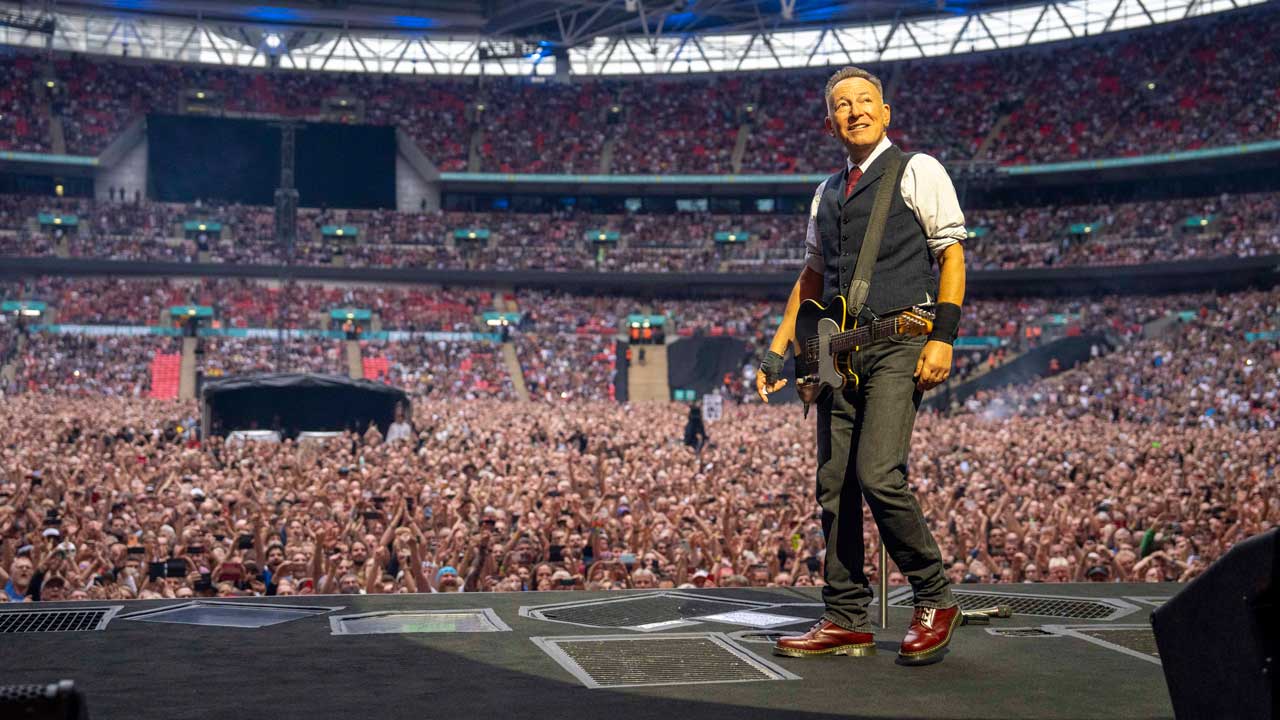Why Roger Daltrey is wrong about the music industry... and how he's right
Roger Daltrey says the internet has "stolen" the music industry, and that there's no point in The Who releasing another album. Is he right?

Select the newsletters you’d like to receive. Then, add your email to sign up.
You are now subscribed
Your newsletter sign-up was successful
Want to add more newsletters?

Every Friday
Louder
Louder’s weekly newsletter is jam-packed with the team’s personal highlights from the last seven days, including features, breaking news, reviews and tons of juicy exclusives from the world of alternative music.

Every Friday
Classic Rock
The Classic Rock newsletter is an essential read for the discerning rock fan. Every week we bring you the news, reviews and the very best features and interviews from our extensive archive. Written by rock fans for rock fans.

Every Friday
Metal Hammer
For the last four decades Metal Hammer has been the world’s greatest metal magazine. Created by metalheads for metalheads, ‘Hammer takes you behind the scenes, closer to the action, and nearer to the bands that you love the most.

Every Friday
Prog
The Prog newsletter brings you the very best of Prog Magazine and our website, every Friday. We'll deliver you the very latest news from the Prog universe, informative features and archive material from Prog’s impressive vault.
Echoing the types of arguments put forward by spooked record companies in the immediate aftermath of Napster in 1999⁄2000, The Who’s frontman Roger Daltrey has kicked over a few amps by claiming that the record business is dead and the holder of the smoking gun is “the internet”.
“The way the internet has come about has been the biggest robbery in history, like musicians should work for nothing,” he told Rolling Stone. “You get paid for streaming, my ass. There’s no control. Musicians are getting robbed every day. And now it’s creeping into film and television, everything now.”
He claims there is no “record industry anymore”. Well, there is and there isn’t; it’s like the Schrödinger’s Cat of economics. The record industry generated just over $15bn last year, which suggests there very much is still a record business; but in 2004, it was worth over $33.6bn. So, really, what he means is that there isn’t a record industry that looks like the old record industry any more. That said, there was a tiny bit of growth (3.2%) last year and label trade body the IFPI put that down almost exclusively to streaming. So the internet might have badly beaten up the record industry, but it’s now, slowly, bandaging those wounds and doing rehabilitation therapy.
Within all this – and getting to the heart of what Daltrey is really windmilling against – is a growing sense of financial caution within the major label system and an inverse decline in the profligacy there once was. In 2001, just as the crash was happening, there were five major record labels; today, after a concerted process of consolidation, there are three. Budgets for A&R – focused on the signing, development and maintenance of recording talent – are not what they were.
There is arguably, at the entry point into the industry, greater caution among the majors about who they will sign and only the ones that seem the safest bet will get a deal. Equally, and like a more benign version of Logan’s Run, there is less incentive to keep funding records by what are now referred to as “heritage acts” (which means their legacy remains but their ability to sell new records left the building years ago). The harsh truth of the matter is that people will pay through the nose to see The Who live but will not give even as much as a shrug if The Who put out a new album tomorrow. “Play some old,” is the disheartening cry most acts of a certain age most fear at their gigs. If fans don’t want to sit through five minutes of a new song at a gig, they’re even less likely to want to sit through 60 minutes of a new album at home.
Take the singer out of the band and add the dreaded phrase “solo album” and watch as interest in that album slumps from near zero into a negative percentage. Daltrey did have a top three album two years ago in the UK – but Going Back Home was a joint effort with Wilko Johnson, Dr Feelgood’s force of nature who wonderfully and beautifully zig-zagged past the Grim Reaper so that album was, in many ways, the lap of honour he wasn’t supposed to have. A solo Daltrey album will not, sadly, sell in the sort of numbers that would get a label treating it as a priority release.
Daltrey, however, also made an important point about getting paid. The internet has helped usher in a sense of entitlement among a certain type of consumer who feel that everything should be free and that they will go out of their way not to pay for anything. This is utterly unsustainable and Daltrey is right to call it out. “I’m certainly not going to pay money to give my music away free. I can’t afford to do that,” he said. “I’ve got other things I could waste the money on.” While few will have much sympathy for an artist who plays enormous shows and is a key part of Desert Trip in October, the most financially lucrative festival line up of all time. Yet that doesn’t justify not paying to hear his music as if, because he’s got “enough” money now, we can all freeload off him.
Sign up below to get the latest from Classic Rock, plus exclusive special offers, direct to your inbox!
Yet, for him to say there are “no royalties” on the internet is, frankly, nonsense. YouTube might not pay much for streams of old Who videos, but it does pay. Equally, Spotify also pays and, handily, makes all its play numbers public. Baba O’Riley is the most-played Who song on Spotify with over 51m plays. Spotify pays an average of $0.007 per play, split between the record label (for the sound recording) and the publisher (for the composition). That means that Baba O’Riley alone will have generated $357,000.
Daltrey won’t share in the publishing side as he didn’t write it but should, in theory, have a share in the recorded side. How much he gets will be down to the terms of his and the band’s recording contract with Polydor (and what digital rates it pays them) and if he and the band have recouped all the advances they have been paid out. There are a lot of “ifs” here, but this is just one song among many and Spotify is just one “internet” service among many – and it does pay. Artists might, as they have every right to, complain it doesn’t pay enough, but to say they don’t pay anything is, simply, not true.
Maybe, however, rather than seeing the “death” of the old label system as a bad thing, there’s an incredibly positive upside. A decade ago, grand claims were being made that MySpace would make labels redundant, but that never happened. Earlier this year, however, Chance The Rapper, who is not signed to a label, got his album Coloring Book into the top 10 of the Billboard 200 in the US on streams alone – and just on Apple Music. He had clearly looked at the chaos, uncertainty and conservatism around him in the business and felt he could do a better job himself. He struck a partnership with Apple rather than trying to do it with Universal, Sony or Warner and it paid off handsomely. There are ways into the future if you are keen and smart enough to seek them out.
It’s either ironic or inevitable – depending on where you stand and what your sightline in this debate is – that someone like Daltrey, forged in the white heat of mod and its emphasis on agitation and charging into the future, should appear to throw in the towel at the precise moment of the biggest upheaval in the music business. There’s a wistful nostalgia, or a pernicious necrophilia, here for the way things used to be as opposed to how they could be.
The internet has been a serious of explosions, much like the explosives Who drummer Keith Moon set off during the band’s infamous performance on the The Smothers Brothers Comedy Hour in 1967. First there was Napster, then iTunes came along and saved the singles market but did so at the expense of the albums market, then Spotify and YouTube put the idea of ownership to the sword. The internet, to use the parlance of the technology sector, massively disrupted the record business at the turn of the millennium, but the dust is starting to settle and it appears the two sides are slowly but surely finding a compromise.
Who guitarist Pete Townshend claimed that Moon’s incendiary jape half a century ago severely damaged his hearing and he’s never quite recovered from it. It seems that the internet’s repeat of Moon’s reckless prank has brutally impaired Daltrey’s vision.
